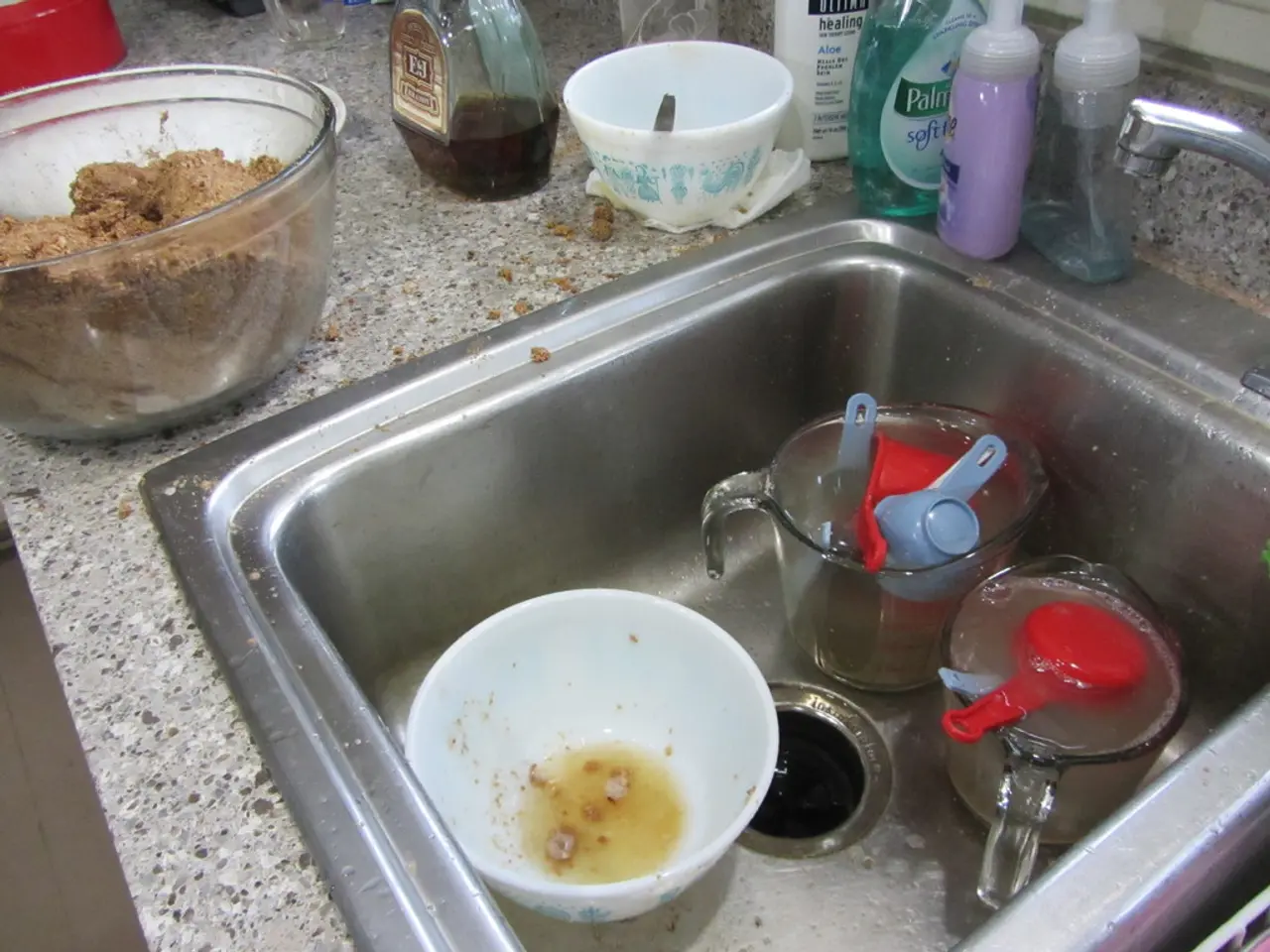Diarrhea resulting from antibiotic use: Signs and remedies
Antibiotics are a vital tool in fighting infections, but they can also have unwanted side effects. One such effect is antibiotic-associated diarrhea, which can range from mild to severe and may indicate a dangerous infection.
Antibiotic-associated diarrhea usually subsides when a person stops using antibiotics. However, if it persists or becomes severe, it could be a sign of a Clostridioides difficile (C. diff) infection. This bacterium is known to cause severe antibiotic-associated diarrhea, often leading to Clostridioides difficile-associated diarrhoea (CDAD), which can be life-threatening if left untreated.
Taking broad-spectrum antibiotics, using multiple antibiotics at once, and combining antibiotics with other drugs can increase the risk of antibiotic-associated diarrhea. Misusing antibiotics can also increase the risk of developing a C. diff infection.
Risk factors for developing C. diff include taking antibiotics for more than a week, being over the age of 65, having immune system issues, a recent hospital or nursing home stay, and a history of C. diff infection.
The symptoms of antibiotic-associated diarrhea can occur shortly after taking antibiotics or up to 2 months later. The main symptom is watery bowel movements in a day. Other symptoms include feeling very weak, dehydration, stomach pain, and gas. When C. diff causes diarrhea, it tends to be more severe, with symptoms such as very frequent stools, water or mucus in bowel movements, intense stomach pain, feeling very sick or weak, nausea, and a low fever.
To prevent the spread of C. diff, strategies include taking antibiotics with food, taking probiotics or eating probiotic foods, only taking antibiotics when prescribed by a doctor, avoiding multiple antibiotics except when medically necessary, and seeking prompt medical care for severe diarrhea. Probiotics may help reduce the risk of diarrhea and have some benefits when consumed as certain yogurts.
Complications of antibiotic-associated diarrhea can lead to unintentional weight loss and electrolyte imbalances. In severe cases, C. diff can cause complications such as toxic megacolon, sepsis, peritonitis, bowel perforation, and can be fatal.
When C. diff causes diarrhea, treatment often requires hospitalization, isolation, intravenous fluids, antibiotics (usually vancomycin or fidaxomicin), nasogastric tube placement, and monoclonal antibody therapy. A bland diet, such as the BRAT diet (bananas, rice, applesauce, toast), can be beneficial for managing diarrhea.
A 2020 review suggests a rate of 20 to 35% for antibiotic-associated diarrhea among children taking antibiotics, while a 2018 article suggests the incidence of antibiotic-associated diarrhea in adults is 5% to 25%. Over the last decade, a new strain - called pulsed-field gel electrophoresis type 1 - has caused an increase in the incidence and severity of C. diff infection.
People who test positive for C. diff but have no symptoms typically do not need treatment but must practice appropriate hygiene to avoid spreading the infection. It's important to note that antibiotics can change the rate at which the small intestine absorbs water and nutrients.
In conclusion, while antibiotics are essential for treating infections, it's crucial to be aware of the potential risks, especially antibiotic-associated diarrhea. If you experience diarrhea while taking antibiotics, it's essential to remain hydrated and contact a doctor about whether to continue the antibiotics. If symptoms become severe or you become ill, seek emergency care. People with a history of C. diff or severely weakened immune systems should seek prompt medical care.
Read also:
- Is it advisable to utilize your personal health insurance in a publicly-funded medical facility?
- Dietary strategies for IBS elimination: Aims and execution methods
- Benefits, suitable dosage, and safety considerations for utilizing pumpkin seed oil in treating an overactive bladder
- Harmful Medical Remedies: A Misguided Approach to Healing








